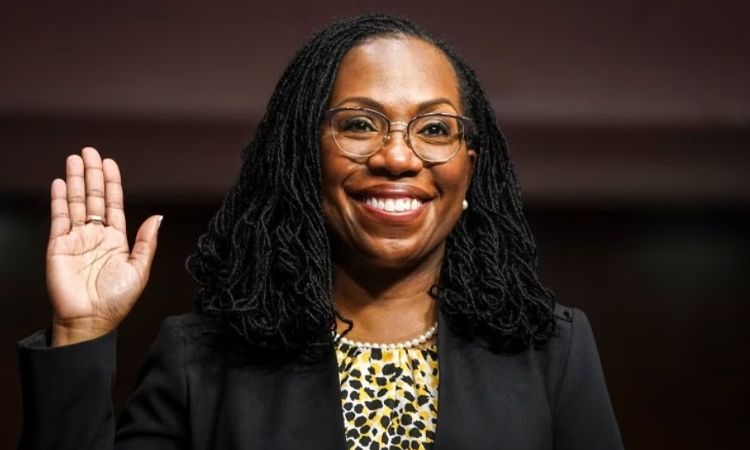Ketanji Brown Jackson Sworn In As US Supreme Court Justice- First Black Woman In Court's History
Aaratrika Bhaumik
30 Jun 2022 10:25 PM IST

Next Story
30 Jun 2022 10:25 PM IST
Justice Ketanji Brown Jackson made history on Thursday as the first Black woman to become a U.S. Supreme Court justice as she was sworn into office immediately following the end of the Court's term and Justice Stephen Breyer's retirement.Chief Justice John Roberts administered the Constitutional oath of office to Jackson, and Justice Breyer administered the second Judicial oath of office...
